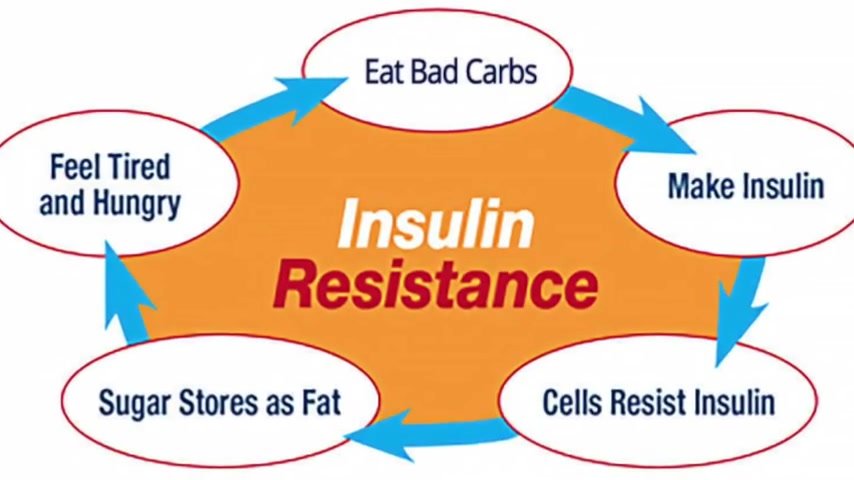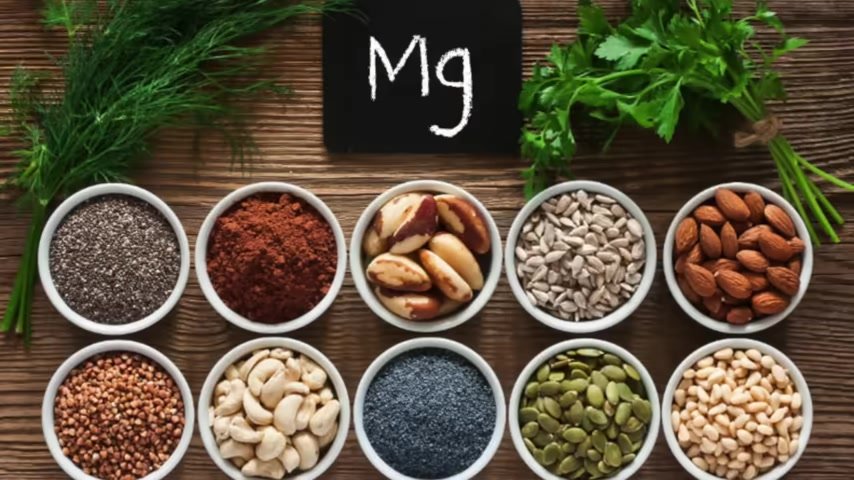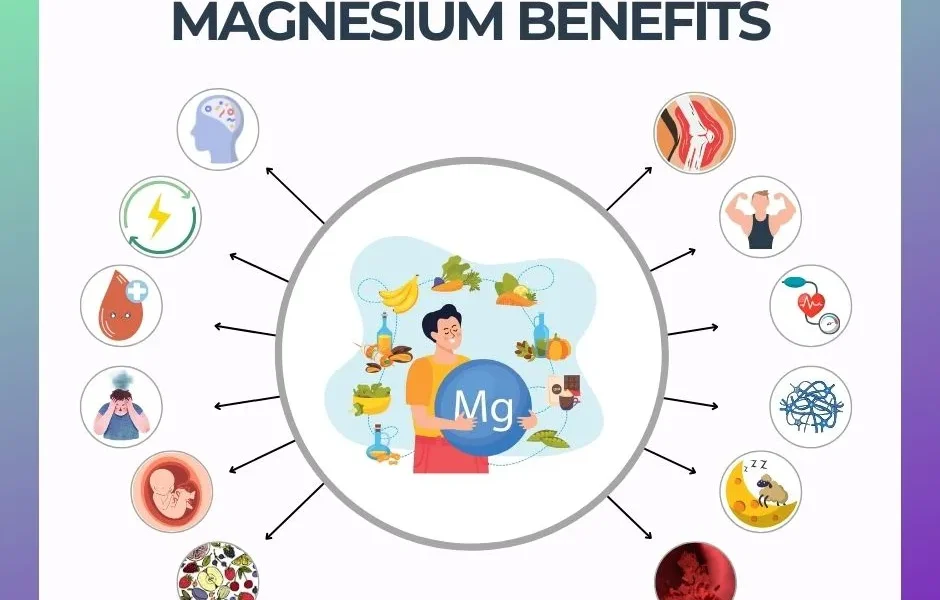Table of Contents
Discover the incredible health Magnesium Benefits Learn how this essential Magnesium mineral boosts energy, relaxes muscles, supports heart health, and improves insulin sensitivity. #MagnesiumBenefits #HealthTips #Wellness”
Magnesium Is a Cofactor

Today we’re gonna talk about magnesium , a very interesting mineral .
There’s a lot to know about it .
I’m just gonna take it from the top .
Magnesium is a cofactor .
What is a cofactor ?
It’s a helper element involved in the activation of certain enzymes .
There’s actually 300 enzymes that magnesium is involved with .
And , the one that I’m gonna talk about is involved in the mitochondria , and it has to do with producing energy .
Magnesium Benefits and The Krebs Cycle
Without getting too technical , it’s called the Krebs cycle .
Maybe you took biology in high school and you learned about the Krebs cycle .
Very , very simply , it’s the combination of fuel or glucose , if you’re gonna use glucose , or there’s other fuels too , plus oxygen .
So the bio chemistry , might appear to be very complex , but if you think about a carburetor what is a carburetor ?
It’s basically a device in your car or your lawnmower that is mixing a drop of fuel with oxygen in the right ratios to then ignite through a little spark plug to produce energy .
Well , you have the same thing happening in the mitochondria , but the spark plug that activates the enzyme that ignites this combination of fuel and oxygen is magnesium and vitamin b 1 .
I mean , there’s other , other nutrients as well , but those 2 are the big ones .
So if if you don’t have enough magnesium in your body , you’re gonna , suffer from low energy .

You’re gonna have fatigue .
There’s other things too that you might experience .
Inability to relax .
So magnesium helps muscles relax , calms down nerves , slows the rate of nerve impulses , and it’s really important in heart physiology .
If you don’t have enough magnesium , you get cramps in the calves .
You get spasms .
You your muscles become very , very tight .
You might even develop something called atrial fibrillation .
Now that could also be a potassium mineral , another similar , mineral that has similar functions .
But atrial fibrillation is part of the heart is fibrillating .
It’s not in rhythm and it’s kinda quivering .
And that could be either a magnesium deficiency or a potassium deficiency .
Magnesium Benefits and Constipation
You can get constipation .
Well , you have muscles around the colon .
You have this pumping action called peristalsis .
So if you don’t have enough magnesium , everything kinda backs up and it doesn’t work .
It’s kind of like your whole colon becomes very , very tight and you might be bloated and you get constipated .
And because the muscles aren’t relaxing , your blood pressure goes up .

If you can’t relax , you’re gonna have insomnia .
You’re not gonna be able to sleep .
You’re gonna have heart rhythm problems and palpitation , possibly chronic back pain .
A lot of times the muscles are just very , very , very tight .
They’re in a spasm and it’s gonna pinch around the nerve .
Migraines .
So you can see that magnesium deficiencies can create a lot of problems .
You also need vitamin d to help absorb magnesium .
So a lot of times people associate vitamin d just with calcium absorption , but you also need it for magnesium .
Magnesium and calcium also are needed .
So in other words , if you have too much or too little calcium , that’s gonna affect the amount of magnesium that you are gonna be able to utilize and absorb .
Magnesium Benefits and Insulin Resistance

Insulin resistance is a situation where you have , insulin doesn’t connect with the cell that well .
The receptor is , like , blocking it .
So we have a resistance , which by the way always will increase the amount of insulin because you have the feedback loops aren’t connecting .
So the body feels that it’s not going in so it produces more .
So insulin resistance is a situation we have too much insulin and it’s just blocked .
Well , when you have insulin resistance you can absorb magnesium and other minerals as well .
Now by taking more magnesium , you can improve insulin resistance .
You can increase the sensitivity of insulin and make insulin work better .
And also by taking magnesium , you can help the absorption of potassium .
So you can see there’s a lot of relationship between vitamins and minerals and hormones .
They all work together .
where do you get magnesium ?

Well , one of the best places are are foods that are high in chlorophyll .
Chlorophyll is like the blood of the plant .
The chemistry of chlorophyll is very similar to your own blood , but your blood has iron as its main mineral and chlorophyll has magnesium .
So you wanna consume a lot more leafy greens to get your magnesium .
But the cool thing is you can also get the potassium .
You’re gonna get calcium and your vitamins as well .

It’s in nuts and seeds .
And as a last side point , the quantity of leafy greens you would need would be roughly around 7 cups to 8 cups or even up to 10 cups per day to get your , minimum amounts of magnesium .
But that way you’ll get your potassium as well .
key Points:
The sparkplug that activates the enzyme that ignites the combination of fuel and oxygen is magnesium and vitamin B1(thiamine). Not enough magnesium could cause low energy, fatigue, and a lot of problems. He also talks about insulin resistance and how this condition could also cause magnesium deficiency.
Symptoms of Magnesium Deficiency
- Inability to Relax (Muscle, Nerve, Heart)
- Cramps in Calves/Spasm/Tight
- Atrial fibrillation – Part of the heart is not in rhythm and is quivering
- Constipation – the whole colon becomes very tight which could cause bloating and constipation
- High Blood Pressure
- Insomnia
- Heart Rhythm problems and Palpitations
- Chronic Back Pain
- Migraines
Magnesium Benefits
- Improve and help insulin resistance – by increasing the sensitivity of insulin and making insulin work better.
- Helps potassium absorption
Source of Magnesium:
- Foods that are high in chlorophyll – Leafy greens, Nuts, Seeds
DATA:
Get my FREE PDF Guide on Magnesium 👉Guide on Magnesium
FAQ:
What is the main benefit of magnesium?
The main benefit of magnesium is its crucial role in supporting biochemical reactions in the body, including energy creation, protein formation, gene maintenance, muscle movements, and nervous system regulation. Its widespread impact exemplifies why maintaining adequate magnesium levels is vital for health.
What happens if you take magnesium every day?
Taking magnesium every day, within recommended guidelines, contributes to normal physiological function, which may result in:
- Improved bone health
- Enhanced muscle function and relaxation
- Reduced symptoms of depression and anxiety
- Regulated blood pressure levels
- Mitigated headache frequency
What are the benefits of good magnesium levels?
Good magnesium levels can offer several health benefits, including:
- Lowering the risk of cardiovascular disease
- Supporting diabetes management by improving blood sugar levels
- Contributing to bone health
- Reducing migraine headaches
- Alleviating symptoms of premenstrual syndrome (PMS)
Should I take magnesium in the morning or at night?
Deciding whether to take magnesium in the morning or at night depends on the benefits you’re seeking. Taking it at night may improve sleep quality and promote relaxation due to its muscle-relaxant properties. In contrast, taking it in the morning might help you leverage its energy-producing benefits throughout the day.
Magnesium benefits for women
For women, magnesium offers specific benefits such as:
- Alleviating PMS symptoms, including cramps, irritability, and fatigue
- Supporting bone health, crucial in preventing osteoporosis
- Enhancing mood and potentially reducing symptoms of anxiety and depression
Benefits of taking magnesium at night
Taking magnesium at night can help:
- Enhance sleep quality by promoting relaxation
- Reduce muscle cramps, including nighttime leg cramps
- Support overall nighttime recovery of muscles and nerves
Magnesium benefits for men
For men, magnesium can:
- Enhance exercise performance by playing a role in muscle function and energy production
- Support testosterone production, potentially benefiting muscle building and physical performance
- Contribute to heart health and support the management of blood pressure
Magnesium benefits for skin
Magnesium benefits for the skin include:
- Reducing acne by combating inflammation and lowering cortisol levels
- Stabilizing hormonal imbalances that can lead to acne
- Aiding skin hydration and barrier function
Magnesium foods
Foods rich in magnesium include:
- Leafy green vegetables (e.g., spinach, kale)
- Nuts and seeds (e.g., almonds, pumpkin seeds)
- Whole grains (e.g., brown rice, whole wheat)
- Legumes (e.g., black beans, lentils)
- Avocado and banana
How much magnesium per day for a woman
The recommended dietary allowance (RDA) for magnesium for women is 310-320 mg per day, which varies based on age, pregnancy, and lactation status.
Benefits of magnesium
General benefits of magnesium encompass:
- Supporting cardiovascular health
- Enhancing mood and cognitive function
- Regulating levels of other minerals and vitamins in the body
- Facilitating proper muscle and nerve function
Benefits of magnesium and zinc
Together, magnesium and zinc can:
- Support immune system function
- Promote robust antioxidant defenses
- Enhance metabolic function and protein synthesis
- Support reproductive health and hormone balance




